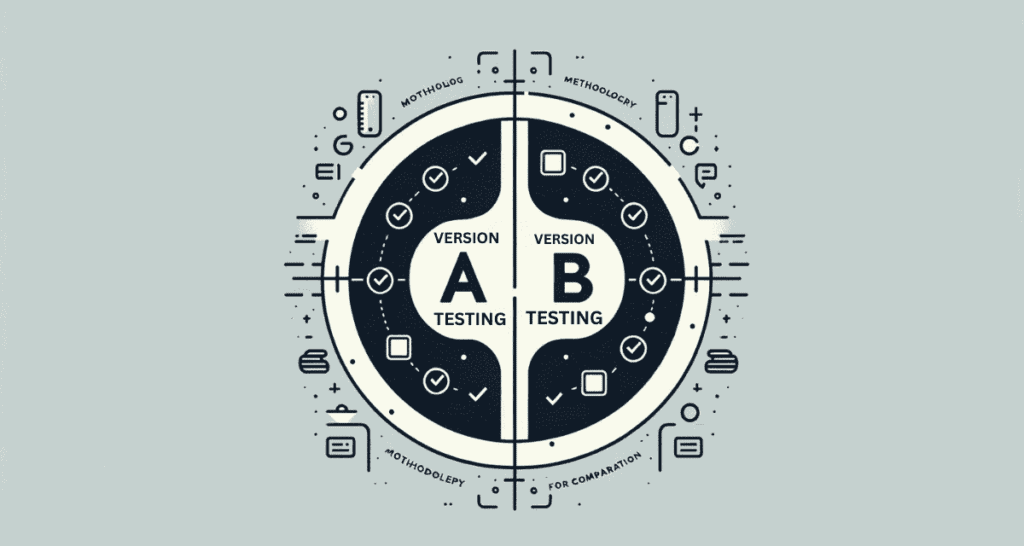Keyword research is the compass that guides digital marketers and SEO professionals through the vast ocean of online content, pointing them in the direction of what their audience is searching for. Among the countless of tools available for this critical task, Google Trends stands out for its unique approach to measuring public interest over time. But it’s not the only one in the game. Today, we’re going to take a closer look at how Google Trends compares to other keyword research tools, diving deep into their features, benefits, and how they stack up against each other in terms of SEO.
Why Keyword Research Matters
At its core, keyword research is about understanding the language your target audience uses to search for your products, services, or content online. It’s a fundamental aspect of SEO that helps ensure your website’s content aligns with user intent, improving your visibility and ranking on Search Engine Results Pages (SERPs).
The Aim of This Comparison
Our goal is to provide a comprehensive comparison that not only highlights the strengths and weaknesses of Google Trends versus other tools but also helps you decide which tool best fits your SEO needs. Whether you’re a beginner just dipping your toes into SEO or a seasoned professional looking to optimize your keyword strategy, this guide is for you.
Understanding Keyword Research Tools
Before we dive into the specifics of Google Trends and how it compares to other tools, let’s get a clear picture of what keyword research tools are designed to do and why they’re an essential part of your SEO toolkit.
What Are Keyword Research Tools?
At their heart, keyword research tools help illuminate the path your audience takes to reach you. They reveal the words and phrases people type into search engines when they’re looking for information, products, or services similar to what you offer. This insight is gold dust for anyone looking to optimize their website for search engines because it allows you to create your content to match your audience’s search intent.
The Role of Keyword Research in SEO
Keyword research does more than just identify popular search terms; it’s about understanding the nuances of your audience’s language and how it develops over time. This research informs your content strategy, helping you create material that resonates with your audience, answers their questions, and solves their problems. By aligning your content with actual search queries, you improve your chances of ranking higher in SERPs, driving more traffic to your site, and ultimately, achieving your business goals.
Why Use Keyword Research Tools?
Discover search volume: Understand how often a term is searched to gauge its popularity.
Identify trends: Spot rising trends to keep your content relevant and timely.
Understand keyword difficulty: Know how hard it would be to rank for a specific term.
Find related keywords: Expand your content’s reach by targeting semantically related terms.
Google Trends: An Overview


Google Trends is a unique tool in the landscape of keyword research, offering insights that are both broad and detailed into what the world is searching for. Let’s break down what makes Google Trends a valuable asset for anyone looking to refine their SEO and content strategy.
Key Features of Google Trends
Trend Discovery: Identify what’s currently popular or rising in interest over time.
Time Range Analysis: Examine how interest in a topic has changed from 2004 to the present.
Regional Interest Data: See where in the world a term is most popular, helping modify content to specific geographic locations.
Category Filtering: Filter search data by categories, refining your insights to be more relevant to your niche.
Comparison Tool: Compare the search interest of up to five terms or topics, seeing how they stack up against each other over time.
Why Google Trends is Important for SEO
Google Trends shines by providing a macro view of search behavior, which is invaluable for spotting overall trends and shifts in what people are interested in. Here’s why it’s a must-use tool for SEO:
Content Ideation: By identifying trending topics, you can create content that meets the current interests of your audience, increasing the likelihood of engagement and shares.
Seasonal Trends: Understanding when interest in topics peaks can help you schedule content more effectively, maximizing visibility.
Niche Insights: The ability to drill down into specific categories and regions helps you tailor your content strategy to target audiences more accurately.
Keyword Context: Google Trends can help you understand the context around a keyword, providing ideas for related topics and queries that could enrich your content.
There is our expert guide on How Google Trends can be Used For Content Marketing and SEO.
Other Keyword Research Tools: An Overview


While Google Trends offers invaluable insights into search trends and interest over time, it’s just one piece of the puzzle. To build a comprehensive SEO strategy, it’s often necessary to use other keyword research tools that offer more detailed data. Let’s explore some of the key players in this space and what they bring to the table.
SEMrush
SEMrush is a powerful all-in-one SEO toolset that provides extensive data on keyword research, site audits, competitor analysis, and more. It’s particularly known for its detailed keyword analytics, which include search volume, keyword difficulty, and CPC estimates.
Keyword Magic Tool: Offers millions of keyword suggestions, sortable by various metrics.
Competitive Research: Allows you to see the keywords your competitors are ranking for and their position changes.
SERP Analysis: Provides insights into the search results for a keyword, including featured snippets and other SERP features.
Ahrefs
Ahrefs is another comprehensive SEO tool that excels in backlink analysis but also offers robust keyword research features. Its database is updated with fresh keywords daily, providing users with accurate and up-to-date information.
Keywords Explorer: Gives search volume, return rate, and clicks data for keywords across various search engines.
Content Gap Analysis: Identifies keyword opportunities by comparing your content to that of your competitors.
Rank Tracker: Monitors your rankings for specific keywords, giving insights into how well your SEO efforts are paying off.
A guide will help you to mak decision for Google Trends vs. Other Keyword Research Tools: A Comparison.
Moz Keyword Explorer
Moz Keyword Explorer simplifies keyword research by providing easy-to-understand metrics and integrating seamlessly with other Moz tools for a full-suite SEO solution.
Keyword Suggestions: Offers thousands of related keyword ideas along with their difficulty score and potential.
SERP Analysis: Breaks down the first page of search results for a keyword, showing the top-ranking pages and their metrics.
Priority Score: Combines all keyword metrics into a single score to help you prioritize your efforts.
Why Use These Tools Over Google Trends?
While Google Trends is excellent for understanding broader search trends and interest, tools like SEMrush, Ahrefs, and Moz offer more precise data that’s important for SEO:
Search Volume & Difficulty: Knowing how many searches a keyword gets and how hard it would be to rank for it is essential for prioritizing your efforts.
Competitive Analysis: Understanding what your competitors are ranking for can help you identify gaps in your own content strategy.
Detailed SERP Analysis: Seeing what currently ranks on the first page of Google for a keyword can inform how you structure your content.
Each of these tools has its own strengths and serves various aspects of SEO. Depending on your specific needs—whether it’s deep-diving into competitive analysis, tracking your rankings, or getting detailed keyword metrics—you might find one more suitable than the others.
A/B Testing Methodology for Comparison


When comparing Google Trends to other keyword research tools, using A/B testing methodology can offer clear insights into which tool best suits your specific SEO needs. A/B testing in this context involves a systematic comparison of tools based on several key performance indicators (KPIs). Let’s break down how to approach this comparison effectively.
Setting Up Your A/B Testing Framework
Define Your Objectives: Clearly outline what you aim to achieve with your keyword research. Are you looking for trending topics, detailed keyword analytics, or competitive insights?
Select Your Tools: Choose the tools you want to compare. For instance, you might test Google Trends against SEMrush for trend analysis capabilities.
Identify Key Metrics: Determine the metrics that will guide your comparison, such as data accuracy, keyword suggestions quality, user interface, and cost-effectiveness.
Conducting the A/B Test
Keyword Discovery: Use each tool to discover keywords for a specific topic or niche. Note the volume and variety of suggestions each tool provides.
Trend Analysis: Analyze the trend data provided by Google Trends and compare it with the search volume trends and forecasts available in tools like SEMrush or Ahrefs.
Competitive Analysis: Evaluate how each tool helps you understand your competitive landscape. This could involve analyzing competitor keyword strategies or SERP positions.
User Experience: Assess the ease of use of each tool, including the sensibility of the interface and the accessibility of data.
Evaluating the Results
After conducting your A/B tests, compile and analyze your data to evaluate which tool or combination of tools best meets your objectives. Consider the following:
Comprehensiveness: Which tool provided the most thorough insights according to your defined metrics?
Accuracy: Assess the reliability of the data. This might involve cross-referencing keyword volumes or trends with actual traffic data.
Usability: Determine which tool offered the best user experience, making the process of keyword research more efficient and less time-consuming.
Cost-Effectiveness: Consider the value each tool offers relative to its cost, especially if you’re working with a limited budget.
Making an Informed Decision
The outcome of your A/B testing should provide a clear direction on which keyword research tool or combination of tools aligns best with your SEO strategy. It’s important to remember that no single tool may meet all your needs perfectly. Often, a hybrid approach that leverages the unique strengths of multiple tools will yield the best results.
Comparative Analysis
After setting up and conducting A/B testing between Google Trends and other keyword research tools like SEMrush, Ahrefs, and Moz Keyword Explorer, we can draw some comparative insights. This analysis will focus on key aspects such as data accuracy, keyword suggestions quality, user interface, and cost-effectiveness, providing a clearer picture of which tool might be the best fit for different SEO needs.
Data Accuracy
Google Trends excels in showing the relative popularity of keywords over time, which is invaluable for identifying trends. However, it doesn’t provide exact search volumes, which can be a limitation for precise planning.
SEMrush, Ahrefs, and Moz offer detailed search volume data, making them more suitable for accurate keyword analysis and strategy development.
Keyword Suggestions Quality
Google Trends offers insights into trending topics and related queries, which can be useful for content ideation but lacks the depth of keyword suggestions compared to other tools.
SEMrush and Ahrefs both provide extensive keyword suggestions based on seed keywords, including long-tail keywords, which are crucial for making a comprehensive SEO strategy. Moz also offers valuable keyword suggestions, with a focus on the difficulty score to help prioritize efforts.
User Interface and Ease of Use
Google Trends highlights a user-friendly interface that’s easy to navigate, making it accessible for beginners or those looking for quick trend insights.
SEMrush, Ahrefs, and Moz have more complex interfaces due to the breadth of features they offer. While they may have a steeper learning curve, they also provide more comprehensive data and tools for deep analysis.
Cost-Effectiveness
Google Trends is free, making it an excellent tool for those on a tight budget or just starting with SEO.
SEMrush, Ahrefs, and Moz are subscription-based services with various pricing tiers. They represent a significant investment, but the depth of insights and tools they offer can justify the cost for serious SEO efforts and professionals.
Practical SEO Scenarios
For identifying rising trends and seasonal interest, Google Trends is unparalleled. It’s particularly useful for content marketers and brands looking to stay relevant with their audience’s interests.
For detailed keyword research, competitive analysis, and tracking SEO performance, SEMrush, Ahrefs, and Moz offer more strong solutions. They are better suited for SEO professionals and marketers who need to develop and implement comprehensive SEO strategies.
Conclusion
Choosing the right keyword research tool depends largely on your specific needs, expertise level, and budget. Google Trends is an invaluable resource for spotting trends and understanding broader search interest patterns, making it ideal for content ideation and market research. On the other hand, SEMrush, Ahrefs, and Moz provide the detailed analytics and tools necessary for in-depth SEO planning and execution.
For most, a combination of these tools will offer the best of both worlds—broad insights into search behavior from Google Trends, complemented by the detailed analysis and competitive intelligence available from SEMrush, Ahrefs, and Moz. By leveraging the strengths of each tool, you can develop a more informed and effective SEO strategy that drives results.
In the end, the key to successful keyword research and SEO is not just in choosing the right tools but in how you use them to understand your audience better and meet their needs with your content.
- Leveraging the Lastmod Tag in WordPress 6.5 for Superior SEO - May 23, 2024
- The Essential Role of Human Intervention in AI Content Creation - April 2, 2024
- Criteria for Google’s Spamming List: Avoiding the Pitfalls - April 1, 2024

